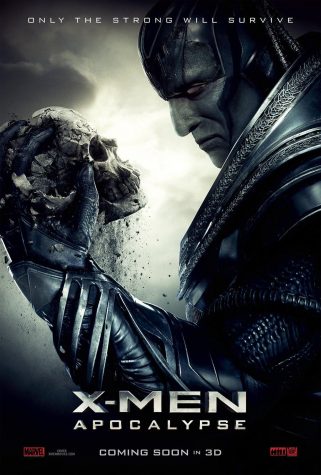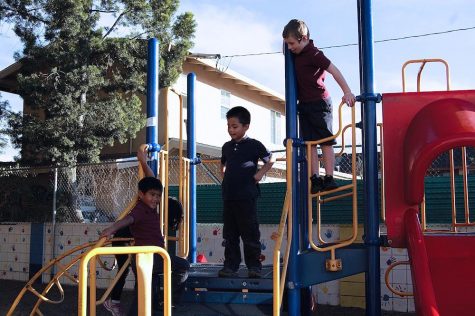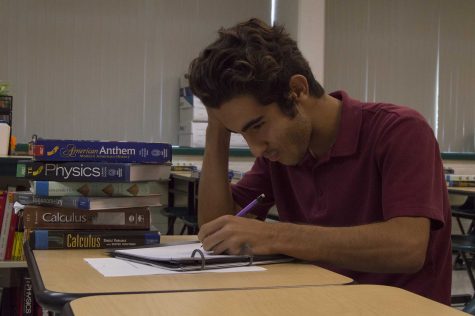Say Goodbye to STAR Tests
On Oct. 2, California Gov. Jerry Brown signed AB 484, a bill that replaces STAR testing with the Measurement of Academic Performance and Progress (MAPP). This new testing program is aligned with what teachers have already begun to use: Common Core State Standards. Papers and pencils will become null because the new testing is done on the computer.
Although the California Standards Tests will be swapped out, a few students will still take some of the older standardized multiple choice exams in the spring. According to Bonnie Gould from the GUSD, students in grades 5, 8 and 10 will still be taking the STAR tests for science. With this new legislation, even if the state decides not to use the MAPP, the CSTs will no longer be used.
Since 1999, teachers have had to teach by the CSTs. Now they can branch out with the Common Core because the MAPP doesn’t test for specific knowledge like the older CST/STAR tests. Many teachers at Clark say they are excited by the testing changes. “I’m really excited about the curriculum,” said English teacher Carol Pettegrew. “I won’t stress so much on the small stuff.”
History teacher Armine Vardanyan shares the same belief. She teaches world history and U.S. history in a faster pace than she’d prefer. “It’s difficult for us to get through the book,” she said. “I feel pressured. We’re going through the standards just for going through them.”
The new test also steers away from the STAR tests’ traditional multiple choice questions and focuses more on written responses. At high schools, juniors will be the ones taking the MAPP in either English or math in the spring. Those are just pilot tests and will not be scored.
Juniors expressed a variety of responses when told about these changes. Daryl Paras said, “I think it’s beneficial because we think more critically as opposed to bubbling in multiple choice questions.” Other students like Leana Setian felt that the test is a plus for writers. “For me personally, I do better on written tests,” she said. “You understand the subjects more.”
On the other hand, some juniors thought that the change was too sudden. “It’s a huge shift from what we’ve been doing for almost a decade,” D’Mario Tevanyan said. “We haven’t been prepared for it.” Similarly, Joshua Valerio said that he had concerns about the changes. “If we haven’t been taught what’s going to be on the Common Core essay, it’ll be unfair if they expect us to be more advanced,” he said.
Math teacher Amir Ghavam said he is also concerned about the shift. Ghavam teaches his students with Common Core exercises, but he feels that the students are still unprepared. He said, “I wish they didn’t implement it all at once,” he said. “Everybody’s getting pushed in.”
It will take time for schools to get used to the test and for students to get good scores. No scores will be reported this year, but scores should be reported for the 2014-2015 school year unless the state decides to postpone that. Regardless of what the state ends up doing, teachers will continue to use standards and students are expected to learn them. The new form of testing just brings forward a different way to test that knowledge.







